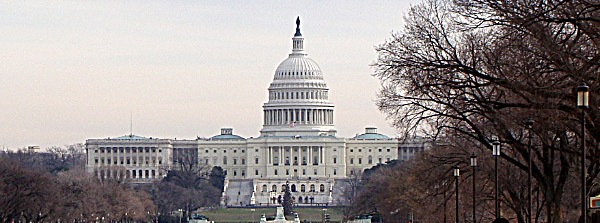- By Office of Congressman Tom Reed
- News
 Print
Print 
Washington, DC - Reps. Tom Reed (R-NY) and Diana DeGette (D-CO) the co-chairs of the Congressional Diabetes Caucus, have introduced bipartisan legislation to continue funding a key federal diabetes research program for an additional five years, and increase its annual funding from $150 million to $200 million a year.
The legislation would reauthorize and increase funding for the Special Diabetes Program for Type 1 Diabetes, a decades-old federal program that’s currently providing researchers at the National Institutes of Health $150 million a year to study Type 1 diabetes.
This bill introduction was complemented by a letter spearheaded by Reed in support of this program to Minority Leader Kevin McCarthy and Speaker Nancy Pelosi signed by 378 Members of Congress.
Unless Congress acts, the program, which Congress first established in 1997 to develop new ways to treat and prevent the disease, is set to expire at the end of September.
“We care about people struggling with diabetes, and we will do everything we can to support research, treatment, and prevention efforts,” Reed said. “The Special Diabetes Programs has proven successful in delivering groundbreaking research in new treatment, technology and prevention services as well as the treatment and prevention of Type 2 diabetes for American Indians and Alaska Natives. We are pleased to see the overwhelming bipartisan support for this critical program.”
“Diabetes affects more Americans than cancer and AIDS, combined,” DeGette said. “One in 10 Americans has diabetes, and one out of every four dollars that we spend on health care in this country is spent on treating people with the disease. Right now, our best chance for finding a cure lies with the Special Diabetes Research Program that’s providing researchers the funding needed to find new ways to prevent and treat this disease. For the sake of our country’s health and economy, it is absolutely critical that we keep this program going until a cure is found.”
Since the program was created, it has contributed more than $2.7 billion towards diabetes research and has already resulted in several significant breakthroughs and discoveries, many of which have helped develop some of the newest treatments now available to patients.
Among the program’s many successes to date, is its work to help develop the first fully automated insulin-dosing system that’s now available to patients across the country. The program’s funding also helped discover a new way to actually reverse vision loss in some people living with the disease.
Diabetes remains the seventh leading cause of death in the United States. In 2015, 30.3 million Americans – or 9.4% of the population – had the disease, while another 84.1 million Americans had prediabetes and were at risk of developing it. Until a cure is found, the U.S. Centers for Disease Control and Prevention predicts an additional 1.5 million Americans will be diagnosed with the disease every year.
As the toll that diabetes is taking on Americans’ overall health continues to go up, so does the cost to the nation’s overall economy. Approximately one out of every four dollars spent on health care in the U.S. – and one out of every three dollars spent by Medicare – is spent treating people with diabetes.
The Special Diabetes Program for Type 1 Diabetes is one of two diabetes research programs that Congress established in 1997 after a bipartisan Congressional Diabetes Research Working Group found serious limitations in the nation’s ability to research and treat the disease due, in large part, to a lack of funding.
The other program Congress created that year was the Special Diabetes Program for Indians, which provides funding to Indian Health Services to help prevent and treat Type 2 diabetes among American Indians and Alaska Natives. Both programs currently receives $150 million a year in federal funding, and both are set to expire at the end of September if Congress fails to reauthorize them.
The legislation that Reed and DeGette filed to reauthorize the Type 1 diabetes research program is cosponsored by Reps. Tom O’Halleran (D-AZ) and Markwayne Mullin (R-OK).
Reed and DeGette also sponsored legislation introduced by O’Halleran and Mullin that would reauthorize the Special Diabetes Program for Indians for an additional five years.
v15i19



